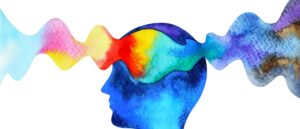Post-traumatic stress disorder (PTSD) and Attention Deficit Hyperactivity Disorder (ADHD) are both mental illnesses that can cause significant distress to sufferers. In this article, we will explore the relationship between PTSD and ADHD, exploring factors that contribute to each illness, as well as how they can be treated.
Contents
What is PTSD?

PTSD is a mental disorder that can develop after exposure to a traumatic event. It is characterized by abnormal thoughts, memories, and feelings.
The symptoms of PTSD can last for many years and can interfere with daily activities.
There is no single cause of PTSD, but it is often associated with anxiety disorders, depression, and substance abuse.
People with PTSD may also have ADHD. However, the relationship between PTSD and ADHD is not well understood.
There is evidence that PTSD and ADHD might share some common features, such as problems with focus and concentration. However, the cause of this relationship remains unknown.
ADHD is a disorder that affects focus and concentration. People with ADHD often have difficulty staying on task and completing tasks on time. They may also have difficulty regulating their emotions.
People with PTSD may also have other disorders. However, the relationship between PTSD and ADHD is not well understood.
There is no definitive way to diagnose PTSD. A doctor may take into account your symptoms, the severity of those symptoms, and the history of your trauma to make an accurate diagnosis.
If you think you may have PTSD, it’s important to speak with a doctor or therapist. It can be helpful to have a professional assessment to help determine the best course of treatment.
Common Symptoms of PTSD And ADHD?

There is no one-size-fits-all answer to this question, as the symptoms of PTSD can vary from person to person. However, some common symptoms of PTSD include:
- Recurrent memories or flashbacks of the traumatic event
- Intense fear or anxiety related to the traumatic event
- Repeating the traumatic event in one’s mind
- Insomnia or difficulty sleeping
- A sense of detachment or numbing from life
- Hypervigilance, or being overly aware of surroundings and people
- Shaking or trembling when scared or anxious
- Loss of appetite or weight loss
- Anger, irritability, and outbursts
If you are experiencing any of these symptoms, it may be indicative that you are suffering from PTSD. If you are unsure if you are suffering from PTSD, it is best to speak with a mental health professional.
Does PTSD Affect Adhd?
There is a growing body of research indicating that PTSD and ADHD may share some common underlying causes. This relationship is still being studied and has yet to be fully confirmed, but there are a few factors that suggest a link between the two conditions.
One study found that people with PTSD were more likely to have ADHD than those without the condition. Another study found that people with ADHD were more likely to have symptoms of PTSD than those without ADHD. These findings suggest that there may be a common underlying cause for these conditions and that these conditions may share some common features.
However, it is still unclear whether or not PTSD causes ADHD, or whether ADHD causes PTSD. More research is needed to determine the true relationship between these conditions.
If you are concerned that your ADHD may be causing problems in your life, it is important to talk to a therapist or psychiatrist who can help you explore the possibility and determine if treatment is necessary.
Relationship between PTSD and ADHD In Children

The relationship between post-traumatic stress disorder (PTSD) and Attention Deficit Hyperactivity Disorder (ADHD) in children is still not well understood. However, there is evidence to suggest that these two conditions may be linked.
PTSD is a mental health condition that can develop after someone experiences or witnesses a traumatic event. Symptoms of PTSD can include flashbacks, nightmares, feelings of fear and panic, and feelings of being disconnected from oneself. ADHD is a condition that affects how a person behaves and interacts with others. People with ADHD may have difficulty with focus, hyperactivity, and impulsiveness.
Studies have shown that children who have PTSD are more likely to also have ADHD. In one study, researchers found that children who had PTSD were three times as likely to have ADHD as children who did not have other disorders. In another study, researchers found that children who had ADHD were twice as likely to have PTSD as children who did not have ADHD.
It is still not clear why these conditions are linked, but it is possible that the symptoms of both PTSD and ADHD overlap. It seems possible that the symptoms of both conditions cause problems in the way a person interacts with others and manages emotions.
Relationship between PTSD and ADHD in Adults

There is a growing body of research suggesting that post-traumatic stress disorder (PTSD) and Attention Deficit Hyperactivity Disorder (ADHD) may be associated. Recent studies have found that people with PTSD are more than twice as likely as the general population to also have ADHD and that ADHD symptoms are more common in people with PTSD than in those without PTSD.
The link between PTSD and other disorders is not clear, but some possible explanations include:
PTSD may cause an increase in impulsiveness and distractibility, which could lead to problems with focus and attention in students with ADHD.
PTSD may increase the risk of developing ADHD by causing disruptions in the normal development of brain circuits related to attention and hyperactivity.
Both conditions may lead to a decrease in socialization, which could lead to problems forming social relationships.
The relationship between PTSD and other disorders is still being studied, but it is clear that these conditions are linked and can affect each other negatively. People with both conditions need to seek out help, as early treatment can improve both outcomes.
Common Treatment of PTSD and ADHD
There is no one-size-fits-all approach to treating PTSD, as the condition can be treated in a variety of ways depending on the individual. However, some common treatments for PTSD include:
Cognitive behavioral therapy (CBT): CBT is a type of treatment that helps people learn how to manage their thoughts and feelings. It can help people manage their PTSD symptoms by teaching them strategies for coping with negative thoughts and memories.
Medication: Some people may need medication to help them manage their PTSD symptoms. Common types of medication used to treat PTSD include anti-anxiety drugs, antidepressants, and mood stabilizers.
Psychotherapy: Psychotherapy is a type of treatment that helps people explore their thoughts and feelings. It can help people work through the emotions that are related to their PTSD symptoms.
Group therapy: Group therapy can help people connect with others who are also experiencing PTSD symptoms. This can help people feel more connected and supported.
Conclusion
There is a growing relationship between post-traumatic stress disorder (PTSD) and ADHD, with both conditions being known to cause disruptions in the way people process emotions. Many people with PTSD also have difficulties regulating their emotions, which can lead to problems such as depression and anxiety. In addition, those who have ADHD may be more likely to experience flashbacks or intrusive memories related to their traumatic experiences. If you are struggling with PTSD or ADHD and you think your condition might be linked, it might be worth seeking out treatment from a professional.
Hope this article was of help to you! If you are suffering from anxiety, you may seek help from Therapy Mantra. We have a team of highly trained and experienced therapists who can provide you with the tools and skills necessary for overcoming anxiety. Contact us today to schedule an online therapy or download our free Android or iOS app for more information.


